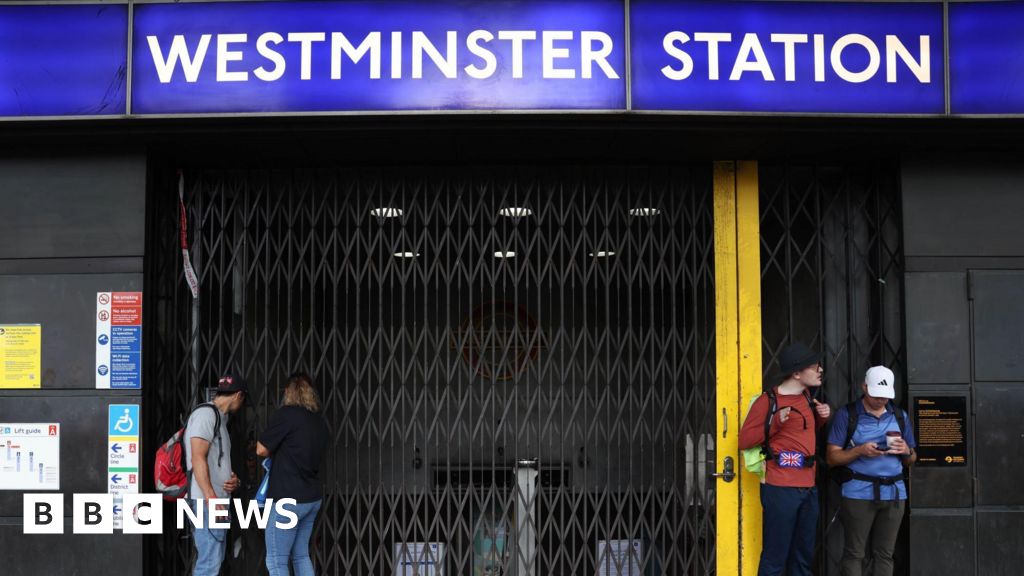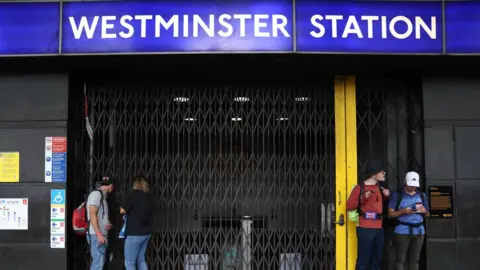 EPA
EPAIndustrial relations on London Underground have “totally collapsed”, a union leader has warned, amid a strike by Tube workers that virtually shut down the network.
It means travellers in London will continue to face disruption as thousands of members of the union take strike action over pay and working hours.
Rail, Maritime and Transport (RMT) union leader Eddie Dempsey said the negotiations became fruitless after the union uncovered Transport for London (TfL) plans to shut Elizabeth line ticket offices – something TfL denies.
Mr Dempsey said further disputes loomed over those alleged proposals as well as pay and conditions of cleaners.
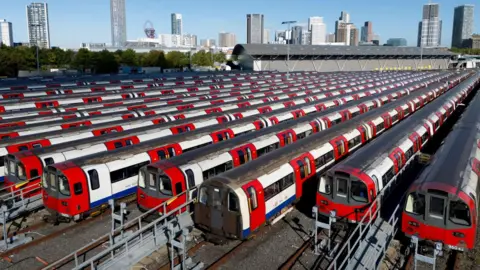 EPA
EPAWith the exception of the Northern line, running a reduced timetable, all Tube services were suspended on Tuesday.
The Docklands Light Railway (DLR) has also shut down due to a strike by RMT union members as part of of a separate dispute.
TfL said it had made a “fair” pay offer of 3.4% and that the the union’s demand for a shorter working week of 32 hours was “unaffordable”.
Claire Mann, TfL’s chief operating officer, said she was “bitterly disappointed” the strike went ahead, calling the demands “unaffordable and impractical”.
London Mayor Sir Sadiq Khan said he urged the RMT to get around the table with TfL to resolve the dispute.
Downing Street has also called on the RMT union and TfL to get back to the negotiating table to end the strike.
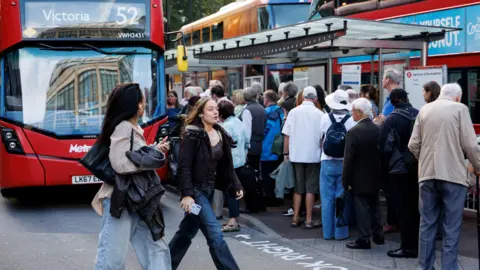 EPA/Shutterstock
EPA/ShutterstockPeople trying to get around the capital turned to buses, boats, bikes, cars and walking routes, with many struggling to reach their destinations.
Speaking outside Poplar DLR station in east London, one woman told the BBC: “I have a kid who was affected. I couldn’t get her to school on time.
“I had to work. I got on three buses but I still couldn’t make it to work on time.”
Another commuter at the station said his commute on the DLR normally takes about eight minutes but was instead a 50 minute walk.
“The weather is good, so no complaints,” he added.
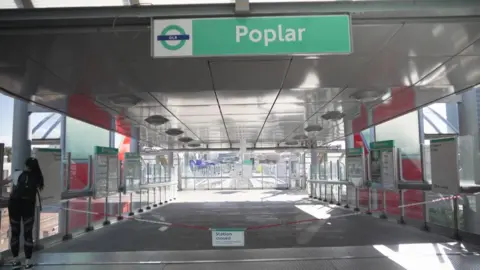
BBC newsgathering journalists reported on Tuesday morning that Elizabeth line, Overground, rail and walking routes to be far less busy than they were on Monday.
TfL figures showed the impact of the strike across its network.
As of 15:00 BST on Tuesday, Oyster and contactless use across the network was down 23% compared with the same day last year, reflecting the near-total shutdown of the Underground and DLR.
Bus boardings were up 9%, London Overground journeys rose 15%, and Elizabeth line use jumped up by a third.
Cycle hire demand also surged, with 22,805 hires recorded by 15:00 – up 73% compared with the same point last week.
